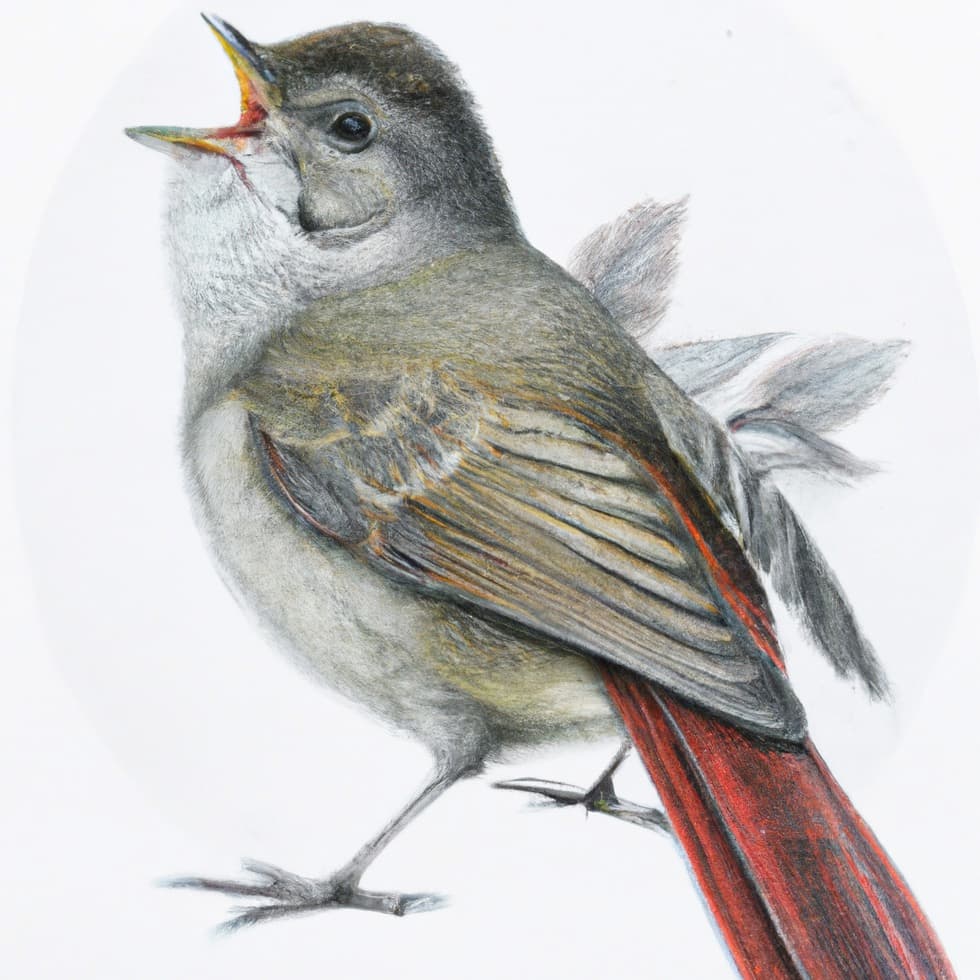
The Nightingale is a small and unassuming bird that is known for its remarkable voice. With a melodious and complex song that has inspired artists and musicians for centuries, the Nightingale is a beloved member of the bird world. In this blog, we’ll take a closer look at 27 curious facts about the Nightingale and discover why this remarkable bird is such a beloved and treasured species.
27 Curious Facts about the Nightingale
- The Nightingale is a small bird that is native to Europe and parts of Asia.
- It is known for its complex and melodious song, which is often used in literature and music to represent beauty and perfection.
- The scientific name for the Nightingale is Luscinia megarhynchos.
- Nightingales are able to sing for up to four hours straight, and their song can be heard up to a mile away.
- They are known for their ability to mimic the songs of other birds and may incorporate other species’ songs into their own.
- Male Nightingales are known for their elaborate courtship displays, which may involve singing and flitting around a female.
- They are able to recognise individual members of their own species based on their songs.
- The collective noun for a group of Nightingales is “watch.”
- Nightingales are able to breed at one year old, and will typically produce one or two broods per year.
- They are able to adapt to a wide range of habitats, including woodlands, gardens, and urban areas.
- Nightingales are able to survive in areas with limited food and water and will often migrate to new areas in search of resources.
- They play an important role in the ecosystem as seed dispersers and insect predators.
- Nightingales are able to produce a wide range of vocalisations, including a variety of trills, whistles, and warbles.
- They are able to sing at a wide range of frequencies, from very low to very high pitches.
- Nightingales have a unique vocal organ that allows them to produce complex songs with multiple tones and notes.
- They have been studied extensively by scientists and researchers due to their remarkable vocal abilities.
- Nightingales are able to live for up to six years in the wild.
- They are vulnerable to predation by a wide range of animals, including birds of prey, mammals, and snakes.
- Nightingales are able to recognise and respond to the songs of other birds and may use songs to establish territories and attract mates.
- They have a distinctive appearance, with a reddish-brown back, greyish underparts, and a distinctive white eye ring.
- Nightingales are able to blend in with their surroundings and are often difficult to spot in the wild.
- They have been used in literature and music for centuries as a symbol of beauty and perfection.
- Nightingales have a relatively low reproductive rate, with females laying up to five eggs in a single clutch.
- They are able to survive in a wide range of habitats, from wetlands to urban parks.
- Nightingales are a key indicator species for the health of their habitat, and their presence is often used as a measure of ecosystem health.
- They are a beloved species among birdwatchers and nature lovers, and their unique characteristics continue to inspire wonder and curiosity.
- Nightingales have a remarkable voice that is sure to capture the hearts and minds of anyone who hears it.
Where to Find the Nightingale
Nightingales are native to Europe and parts of Asia and can be found in woodlands, gardens, and other natural areas throughout the region. They are also found in urban areas, particularly in areas with suitable vegetation and food sources.
Feeding the Nightingale
Nightingales are omnivorous and will feed on a wide range of food, including insects, small mammals, and berries. If you are interested in attracting Nightingales to your local area, it is important to provide them with a suitable habitat that includes a variety of food sources and vegetation.
It is also important to avoid using pesticides or other chemicals that may harm Nightingales or their food sources. By providing suitable habitats and avoiding harmful chemicals, you can help support the health and well-being of these remarkable birds.
Final Thoughts
The Nightingale is a beloved and treasured species that has captured the hearts and minds of people for centuries. With its remarkable vocal abilities, unique behaviours, and distinctive appearance, the Nightingale is a species that is sure to inspire wonder and admiration. Whether you are a seasoned birdwatcher or simply appreciate the natural world, the Nightingale is a species that is worth seeking out. So why not take a moment to listen to the beautiful song of these amazing birds, and perhaps even provide them with suitable habitat in your local area? With their important contributions to the ecosystem and their unique characteristics, Nightingales truly are a treasure of the bird world.